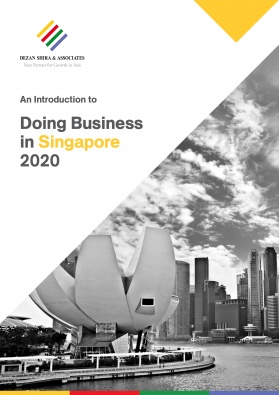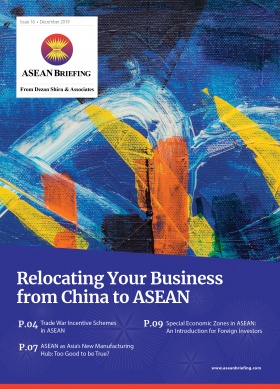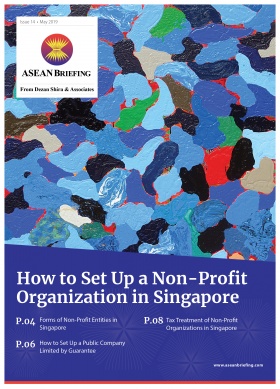Singapore’s Variable Capital Companies: Key Features
- On January 15, 2020, Singapore’s government launched the Variable Capital Company (VCC), a new innovative corporate structure for all types of collective investment schemes.
- The VCC offers more operational flexibility compared to investment fund structures currently available in the country.
- Through this entity, fund managers can establish investment funds across both traditional and alternative strategies and as open-ended or closed-end fund strategies.
- Investors are also eligible to receive tax benefits if they establish a VCC entity.
On January 15, 2020, the Monetary Authority of Singapore (MAS) and the Accounting and Corporate Regulatory Authority (ACRA) launched the Variable Capital Company (VCC), a new innovative corporate structure for all types of collective investment schemes (investment funds) in Singapore.
The VCC is regulated under its own legal framework through the Variable Capital Companies Act and offers more operational flexibility compared to investment fund structures currently available in the country through trusts, limited partnerships, or private limited companies.
This means fund managers can establish investment funds across both traditional and alternative strategies and as open-ended or closed-end fund strategies.
Open-ended funds are offered through fund companies that sell shares directly to investors, allowing them to enter and exit according to their convenience. There is also no limit on the number of shares they can issue, as long as there is an appetite for the fund.Close-ended investments, however, are overseen by a fund manager or brokerage firm and are listed on the stock exchange. There are a fixed number of shares that are issued.
The government hopes this flexibility will attract more investment funds to be domiciled in Singapore and bring the country to the forefront of the global investment services industry.
What are the requirements of a VCC?
There are several key components of the VCC:
- The VCC must have at least three directors who are Singaporean residents. At least one director must be a representative of the fund manager;
- The VCC will require a Singapore regulated and licensed fund manager or it can use a Singapore licensed bank to be the fund manager. The entity cannot be self-managed;
- The VCC can have a single shareholder or hold a single asset;
- The requirements for investment funds listed under the Existing Securities and Futures Act (SFA) will apply to VCC’s;
- The VCC must have a registered office in Singapore and appoint a Singapore-based secretary; and
- It must be audited by a Singapore-based auditor and present its financial statements as per the International Financial Reporting Standards (IFRS) or US GAAP.
What are the key benefits of using the VCC structure?
There are several benefits a VCC structure has over current collective investment schemes in Singapore.
- The VCC can be used as a standalone fund (comprising of a single investment portfolio) or as an umbrella entity with various sub-funds allowing for the segregation of portfolios and liabilities. Having multiple funds in a single VCC can improve cost efficiencies;
- The VCC capital will always be equal to its net assets. This is because the VCC’s shares are only created when investments are made. This provides flexibility in the distribution and reduction of capital as dividends can be paid out of capital, easing the ability of fund managers to meet dividend payment obligations; and
- Fund managers can easily re-domicile existing overseas investment funds by transferring their registration as a Singapore VCC.
There are also several tax benefits for VCC’s. These include:
- A VCC is not burdened by the same capital requirements of an open-end fund in Singapore, and has access to the country’s more than 80 tax treaties;
- An umbrella VCC will only need to file a single corporate income tax return (CIT) to the Inland Revenue Authority of Singapore (IRAS);
- Income from a VCC can be exempt from tax if it qualifies for the government’s Enhanced Tier Fund (ETF) Scheme. There are two criteria for this:
- The VCC must have a minimum fund size of S$50 million (US$36 million); and
- Must have a local business spend of S$200,000 (US$144,000).
- The VCC could qualify for the tax exemptions for startups scheme (SUTE) and obtain a 75 percent tax exemption on the first S$100,000 (US$73,000) of chargeable income during the first consecutive three years. The next S$100 thousand of chargeable income can receive a 50 percent tax exemption; and
- The entity can recover goods and services tax (GST) on expenses occurred in Singapore.
Given the diverse requirements needed for this entity, foreign investors should consult registered local advisors who can ensure your application is accurate and complete.
About Us
ASEAN Briefing is produced by Dezan Shira & Associates. The firm assists foreign investors throughout Asia and maintains offices throughout ASEAN, including in Singapore, Hanoi, Ho Chi Minh City and Jakarta. Please contact us at asia@dezshira.com or visit our website at www.dezshira.com







